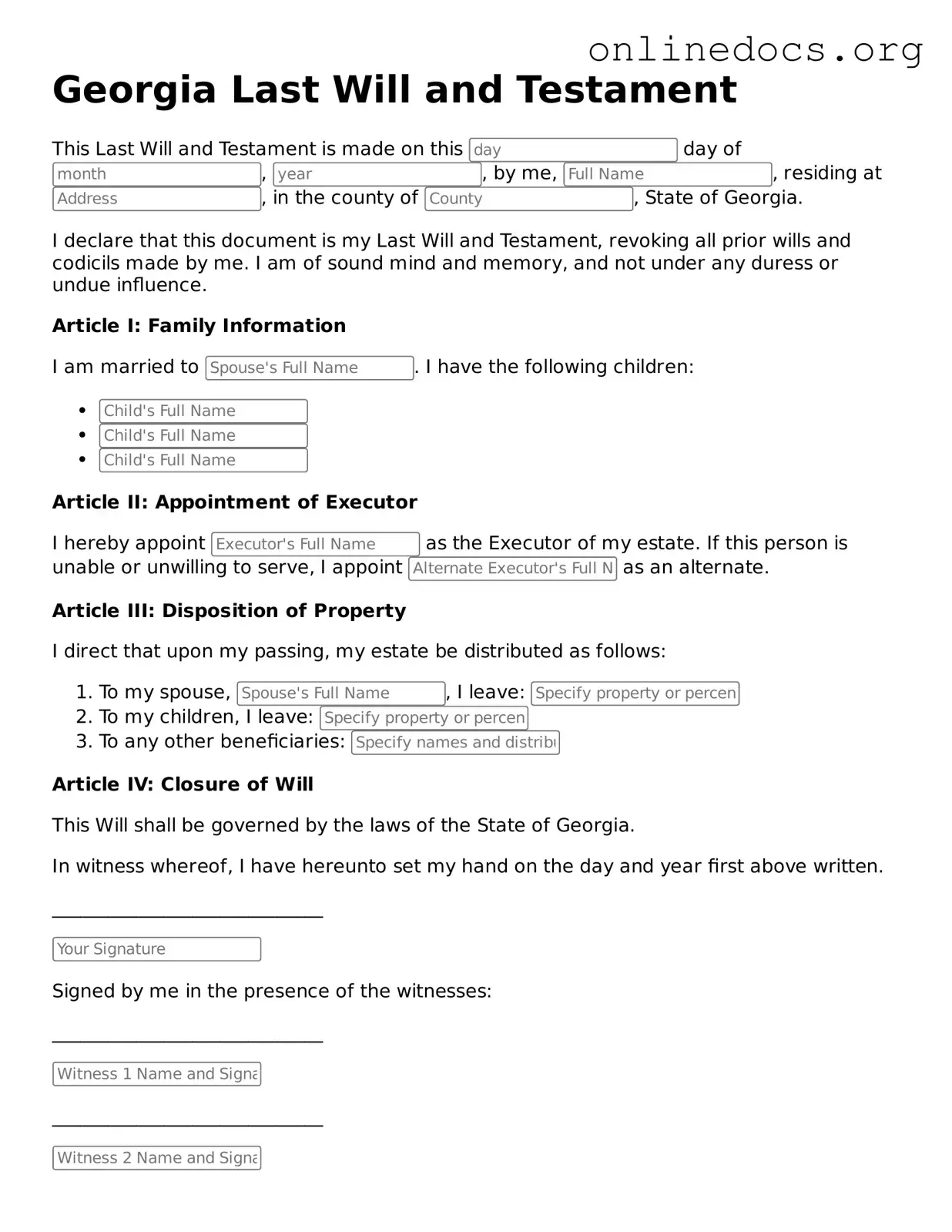The Georgia Last Will and Testament is similar to a Living Will. A Living Will outlines your preferences for medical treatment in case you become unable to communicate your wishes. While a Last Will details how your assets should be distributed after death, a Living Will focuses on your healthcare decisions during your lifetime. Both documents serve to express your wishes and ensure that your desires are respected, but they apply to different aspects of your life.
Another document that resembles the Last Will is a Durable Power of Attorney. This document allows you to appoint someone to make financial or legal decisions on your behalf if you become incapacitated. Like a Last Will, it is a crucial part of estate planning, but it takes effect while you are still alive. Both documents help ensure that your wishes are honored, even if you cannot communicate them yourself.
A Revocable Trust shares similarities with a Last Will as both are used to manage your assets. A Revocable Trust allows you to place your assets into a trust during your lifetime, which can be managed by you or a trustee. Upon your death, the assets in the trust can be distributed according to your wishes, avoiding probate. This document provides more flexibility and privacy compared to a Last Will.
The Georgia Codicil is another document that relates closely to a Last Will. A Codicil is an amendment to an existing will, allowing you to make changes without creating an entirely new document. This can be useful for adding new beneficiaries or changing asset distributions. Both documents are part of the estate planning process and ensure that your intentions are clearly communicated.
A Living Trust is also similar to a Last Will in that both serve to manage your estate. A Living Trust holds your assets during your lifetime and can be transferred to your beneficiaries upon your death. Unlike a Last Will, a Living Trust does not go through probate, which can save time and money for your heirs. Both documents aim to ensure your wishes are followed, but they operate in different ways.
For those dealing with trailer ownership transfer, it's essential to complete the necessary paperwork, including the https://californiapdfforms.com/trailer-bill-of-sale-form/, which provides a clear structure for documenting the transaction and ensuring compliance with legal requirements.
A Healthcare Power of Attorney is another document that shares a purpose with the Last Will. This document allows you to designate someone to make medical decisions on your behalf if you are unable to do so. While a Last Will addresses what happens to your assets after death, the Healthcare Power of Attorney focuses on your healthcare preferences while you are alive. Both documents are essential for ensuring your wishes are respected.
The Declaration of Guardian is similar to a Last Will in that it allows you to express your wishes regarding guardianship. This document lets you name a guardian for your minor children in the event of your death. While a Last Will distributes your assets, the Declaration of Guardian ensures that your children are cared for by someone you trust. Both documents are vital for protecting your family's future.
Lastly, a Bill of Sale can be compared to a Last Will in terms of asset transfer. A Bill of Sale is used to transfer ownership of personal property during your lifetime. While a Last Will specifies how your assets should be distributed after death, a Bill of Sale facilitates the transfer of ownership while you are alive. Both documents are important for managing your property and ensuring that your intentions are clear.
